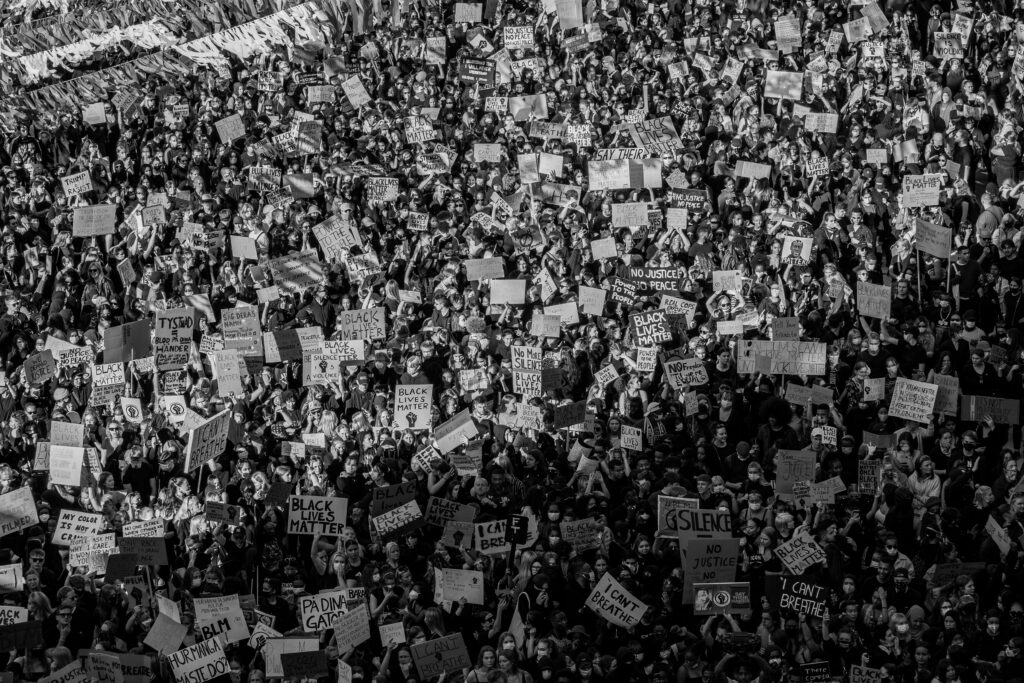
I’ve lived all my life in an environment of protest. I came of age in the 60s, so it started early. Activist writers in those days noted that public protest is a way to get on the political agenda; it’s a way to overcome government inertia and stimulate otherwise uninterested authorities to pay attention. Just as Jesus described a presumably fictional unjust judge (Lk 18.1-8)—I guess governmental inertia was a thing in his day too—politicians will often be unmoved by citizens’ problems unless the citizens find a way to make inertia inconvenient in the lives of the leadership.
So people protest. This is de rigeur in democratic societies, of course, where officials face the prospect of being voted out of office, and where the protesters find it reasonably safe to raise their voices. But it happens in totalitarian societies as well, where the risk is considerably higher. The Soviet Union saw public protests in Czechoslovakia in 1968—that didn’t turn out well for the protesters—and in East Berlin in 1989. (That turned out better.) The Chinese Communists saw a confrontation in Tiananmen Square that same year. The people of Iran rose up against the mullahs just last year. And there are many, many more examples.
Over the course of my life I’ve seen many causes promoted by protest: civil rights (both racial and women’s rights), war and peace, economic policy, criminal justice, right to life (as considered in both abortion and capital punishment), terrorism, tax policy, environment, and others. Most recently there have been protests worldwide against Hamas’s terrorist attack on Israel on October 7 and Israel’s response in Gaza. Many have expressed the opinion that this one seems bigger, more volatile than what has typically preceded; some are talking seriously about the end of the world.
Well, I don’t know when the end of the world is coming, and neither does anybody else. I think it would be unwise to try to predict it even if Jesus hadn’t told us not to. (If he didn’t know the date when he was walking amongst us, how likely are we to get it right?)
But the protests are ubiquitous, and they’re intense. People are expected to take a side.
Sometimes—often—taking a side is precisely the right thing to do. As an acquaintance of mine commented decades ago, the middle of the road is where the yellow stripe is.
I don’t think the protests are going to get quieter, or the issues simpler, as time rolls on. It’s our duty, I’d suggest, to think through a philosophy of protest, something that can guide us through emotional, murky, and rapidly moving times. As a Christian, I need to base my philosophy of protest, like anything else, on the Scripture. I’d like to take a few posts to offer some suggestions and to invite feedback.
I’ll begin with the overarching biblical principle: we live for the glory of God (1Co 10.31). We pattern our thinking after his, as expressed in his Word; we decide our actions, from choosing a vocation to deciding whether to speed up or stop for that deeply pink traffic light, on the same basis. And we establish our priorities, including the decision to join a particular protest movement, based on his. Only he is worth all our love, all our loyalty, and all our devotion. God is the only person we can follow blindly—and He doesn’t ask us to (Is 1.18).
Next time, we’ll tease out other biblical principles that we need to consider in developing our philosophy of protest.
Photo by Teemu Paananen on Unsplash
Part 2: Biblical Principles | Part 3: What Now? | Part 4: Tactics | Part 5: The Long View

William M. Bump Jr. says
Interesting especially after covering the Reformation which did involve protesting.
Dan Olinger says
Yes, by “ants,” apparently. :-)